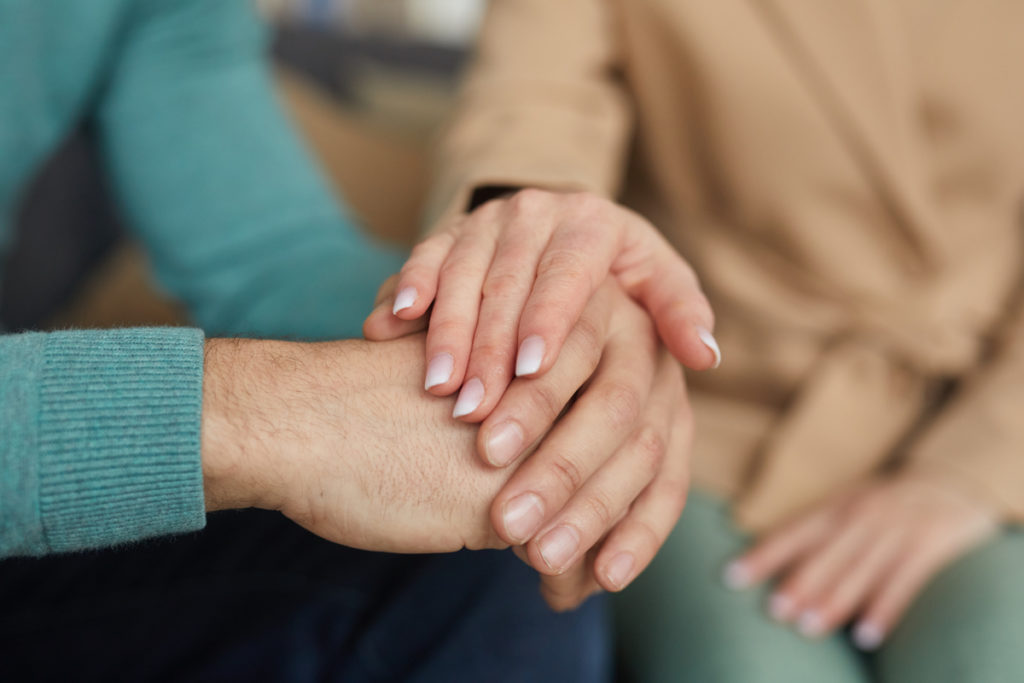If any good thing has arisen from the collective trauma that we are all experiencing through the spread of COVID-19 and subsequent prevention methods, it is a spotlight on just how much we need each other especially when it comes to addiction treatment and beyond. Throughout the last six months, our ability to adapt to a rapidly changing culture has been tested, and we have been forced to look at how we care for ourselves, body, mind and soul.
Socializing matters, connectedness matters, and despite our once youthful wishes, we have learned without a doubt that we are not able to become the best versions of ourselves in isolation.
Being the “best you can be” is really only possible when you are deeply connected to another. Splendid isolation is for planets, not people.
Dr. Sue Johnson
In Addiction Treatment and Recovery
In addiction treatment and recovery, we learn this lesson firsthand, from the very first “step” of the way. It is in step one where we confront our own powerlessness in the face of the addiction and learn to recognize the role that having a support system is meant to play.
In both our inpatient and intensive outpatient treatment program options, community with others in a similar recovery state is incredibly important.
Specific ways that community is built into our programming include both group therapy and opportunities for family sessions. As your time in our treatment program comes to an end, you will also have the chance to continue to seek out the support of the group through our Rooted Alumni community.
Addiction Treatment: Group Therapy
Group therapy is one of the most beneficial ways to stay connected in treatment and beyond. While the thought of vulnerability in a group setting may be daunting, this fear is meant to be eased through the presence of supportive group leaders and members. Group therapy offers a safe space to talk about your recovery with peers and group leaders who can empathize with the recovery process.
Healthy connections are fostered in group therapy programs by choosing topics and goals consistent with the needs of group members. Some groups focus on education, while others concentrate on processing addiction and recovery.
- Educational groups are formed to provide information at the start of the recovery process and beyond. These groups provide relevant information to group members depending on their specific needs and stage in the recovery process.
- Process oriented groups allow group members to share about the ebbs and flows of recovery while encouraging healthy decision making and holding group members accountable to their personal goals in recovery.
Group therapy is meant to provide a sense of humanity and equality for all group members. No matter your race, life experience, or the history of your addiction, all participants begin the process on an even level with mutual respect and commitment to supporting one another.
The common ground of recovery makes group therapy a useful and often integral part of treatment for those in recovery.
Benefits of Group Therapy
Again, sharing yourself and your life experiences with a group of strangers may sound intimidating at first. However, group therapy provides benefits that individual therapy cannot replicate in the same way.
Groups can act as a support network and a sounding board, as well as a place to practice in-the-moment skills with someone who can offer gentle feedback, without the burden of responding. Other group members may assist with brainstorming or problem solving, whether through sharing specific things that have worked for them or inspiring confidence in your own abilities or skill set. Groups can provide an opportunity for regular check-ins and hold you accountable to the goals set forth.
By regularly engaging with others and listening to their life challenges and thought processes, you may find it easier to put your problems in perspective. It can be incredibly powerful to witness the therapeutic power and life change of someone else’s vulnerability and willingness to confront their demons within the trusted space.
As C.S. Lewis so eloquently states it, “Friendship is born at the moment where one man says to another, “What? You, too? I thought I was the only one…” and I might argue that therein too lies the power of group therapy. It can be a relief to learn that we are not alone in our struggle, especially as we may have previously abided by the laws of secrecy and silence at all costs.
The opportunity to learn from others who have different personalities and represent diverse backgrounds is another crucial benefit of group therapy. To step into someone else’s worldview —their approach towards solving problems and making positive changes— you may learn some new strategies for facing your own difficulties.
“Friendship is born at the moment where one man says to another, “What? You, too? I thought I was the only one…”
Family Programming
Another necessary form of connection in treatment and beyond is family support.
The most critical aspect of family support is integrating one’s family into treatment through family programming. Family programming allows for the healthy exploration of dynamics and roles in one’s family that have contributed to and perhaps even enabled the individual in recovery.
Family programming in addiction treatment brings to light the patterns that families have come to rely on to stay in one another’s lives amid addiction. These sessions help all willing participants break down their unhealthy systems into recognizable and, therefore, changeable patterns. Then, through family sessions, you can build back up to healthy means of support and communication to promote lasting change in each family member in recovery.
As, of course, we know, addiction impacts not only the individual with the substance use disorder but also their families. Family units change to adjust to the hurt and challenge of their family member’s addiction and thus need opportunities to express that hurt and concern in healthy ways and learn how to support their loved one moving forward.
- Informational sessions offer family members a better understanding of the nature of addiction, as well as many of the common family dynamics that occur in addicted families.
- Family sessions offer the opportunity to work on the person-to-person relationships needed to improve communication, regain trust, share feelings, and set boundaries with one another.
Addiction is best fought with support, not in isolation. Involving family in treatment allows those in recovery to call out the family dynamics that contribute to addictive behaviors. These family programs also establish the family as a supportive, accountable network to lean on in addiction treatment and beyond.
Benefits of Family Sessions During Addiction Treatment
- Ability to work through the chaos of addiction
- Fosters greater empathy and understanding among family members
- Highlights and changes negative interaction patterns
- Improves listening and communication skills
- Teaches healthy coping skills
- Enhances family problem-solving and conflict-resolution skills
- Allows family members to practice setting healthy boundaries
- Improves conflict-resolution abilities
- Rebuilds trusting relationships
- Decreases the risk of relapse
- Helps loved ones understand the complex interplay between addiction, dual diagnosis and mental illness
Overall, with family programming, you can take steps to repair your relationships and make the needed changes to make a lasting impact in the life of your family.
Alumni Program – Life in Recovery from Addiction
Recovery does not end when leaving treatment or upon reaching sobriety goals. Rather, recovery continues throughout life. Participating in alumni programs not only provides ongoing support to those in recovery, but these programs are also a way for those further into their recovery journey to give support to those who are new to addiction treatment.
Relapse rates in the first year have been calculated as high as 85%. If recovery is treated as an individual process without connection to those in recovery, the likelihood of relapse rises. Humans thrive on connection, both in health and in recovery towards health. Alumni programs exist to limit the chance of relapse by aiding with the transition from life in direct treatment to the more independent means of recovery beyond treatment.
Some specific benefits of participating in an alumni recovery network include:
- Maintaining connections to others in recovery
- Receiving education and support when moving from treatment to daily life
- Practicing and reinforcing tools for preventing relapse
- Receiving support when practicing “skills learned in addiction treatment.”
- Opportunities to influence other members of the recovery community
The Ranch welcomes all people in all forms of recovery (including those who did not attend treatment with us) to join us on any of our recently-expanded range of virtual recovery meetings.
Recovery at The Ranch Tennessee
No matter where you find yourself on your journey towards recovery, The Ranch Tennessee offers evidence-based and holistic treatments appropriate for your level of care.
Mental health and substance abuse treatment programs can include both inpatient and outpatient options, such as:
- Drug & alcohol detox program
- Residential addiction treatment programs
- Partial hospitalization programs
- Intensive outpatient programs
- Aftercare programs
The Ranch encourages those in recovery to lean on those supportive to your recovery in treatment and beyond. Group, family, and alumni programs help those in recovery build and maintain lasting social support.Contact The Ranch TN today at 1.844.876.7680 to find out more about how we can support you on your journey!


